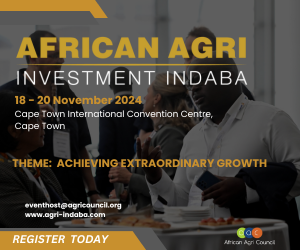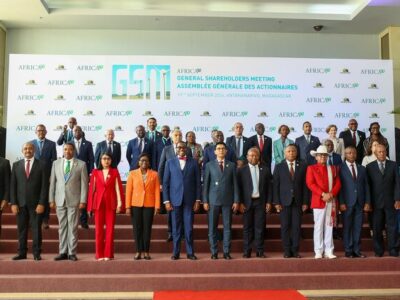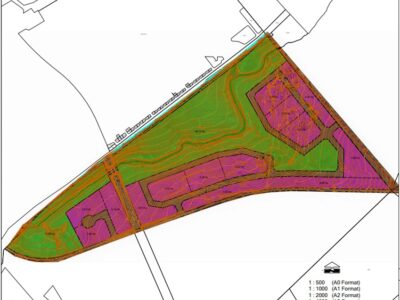
2024 is an important year for the global agrifood and financial community; 18 elections across the African continent, new regulations are coming online, new climate finance targets, and governments of the world are still spending between $600 to $800 billion a year subsidizing their agricultural sector; which means debt continues to be a challenge and the mobilization of private capital remains a priority.
Africa’s potential is undeniable and well documented, however the continent is still struggling to support its agriculture sector to feed itself. Securing funding in Africa has remained a challenge due to various factors, such as the reduced pool of funds available, more stringent due diligence requirements exacerbated by political and currency instability in different parts of the region and regulatory hurdles.
The African Agri Council (AAC) Board met in Cape Town in November last year and “impact” was in focus during the meeting. Adidja Hassan, Ben Leyka, Gilles Mettetal, Frank Braeken, Mamati Tembe, Nhlanhla Nene, Susan Payne and Tatiana Mata discussed the Council’s work in Africa and its contribution to the mobilization of private capital.
 “Food security in Africa is a major global challenge, given the continent’s immense potential to produce more food than it currently does. Africa has the capacity to supply food to the world, and supporting the private sector is crucial in achieving this,” said Mr. Mettetal, the chairman.
“Food security in Africa is a major global challenge, given the continent’s immense potential to produce more food than it currently does. Africa has the capacity to supply food to the world, and supporting the private sector is crucial in achieving this,” said Mr. Mettetal, the chairman.
Meanwhile, former Finance Minister in South Africa, Nhlanhla Nene, stressed the importance of Africa taking full advantage of the potential it has to feed the world. “We need policies that are prohibitive but it should enable our farmers to participate both in feeding our nation and being able to access outside markets.” Mr. Nene also highlighted the importance of policy independence and technological advancements in fostering agricultural development.
Frank Braeken, underlined the need for balanced partnerships and long-term vision in agricultural policies. “Governments must bridge the gap between the private sector and policy-making,” Mr. Braeken noted. We need to emphasize the importance of learning from successful examples and promoting cooperation between governments and the private sector. Mr. Braeken added “We need to showcase success stories of collaboration between the private sector and governments. There are pockets of success in various regions that demonstrate the potential of effective partnerships.”
Amongst the investing parties, Development Finance Institutions (DFIs) remain most active, and can share their success stories. Global DFIs are now gathering at the annual African Agri Investment Indaba’s DFI Forum in Cape Town; a dedicated business development platform that focuses on strategy, exchange of practical experience and sourcing deals.
Boosting private sector growth is key to the development of food and agriculture in Africa, and we are pleased to announce the 7th edition of African Agri Investment Indaba (AAII), taking place from 18 – 20 November 2024 at the Cape Town International Convention Center in Cape Town, will focus on “achieving extraordinary growth”.
This year Agri Indaba will feature Seeds Startups event that will be centered on business and investment opportunities for small and medium scale farmers and agribusiness startups as well as the Agri Investment Indaba Awards that will celebrate excellence in food and agriculture, said Ben Leyka, Chief Executive Officer of the African Agri Council.
The Agri Indaba 2024 will feature the DFI Forum, high-level talks on achieving extraordinary growth, the Investment Discovery Sessions, strategic closed sessions as well as unlimited networking.
“We’ve setup this year’s Indaba to bring together small and medium size farmers, agribusiness startups, captains of industries, development financial institutions, private equities, asset managers, commercial banks and lenders, policy makers, solution providers representing the entire value chain as different case studies, policies, and solutions are presented to achieve extraordinary growth,” added Loudon Cito, Commercial Director at the African Agri Council.
To find out more about this year’s African Agri Investment Indaba, visit https://www.agri-indaba.com/













Comments